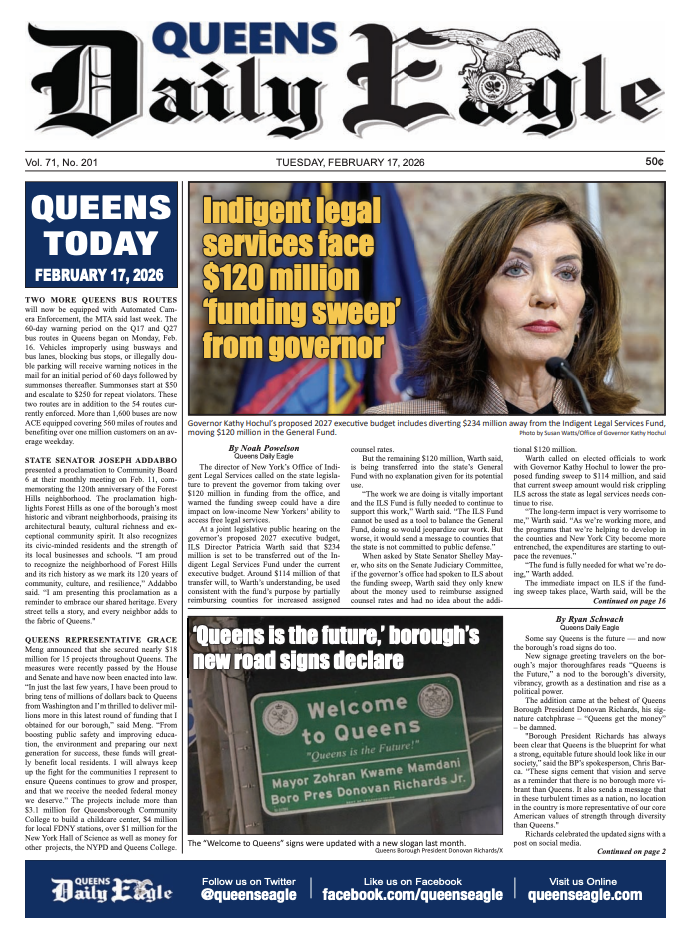Before protests, internal polling had Crowley leading wide-open Queens BP race
/Photo by John McCarten/City Council Photography
By David Brand
Internal polling commissioned by Elizabeth Crowley’s campaign for Queens borough president showed her leading the five-candidate Democratic field on May 4, though no candidate was particularly well known to respondents in the wide-open race.
The campaign surveyed 500 likely voters by phone between May 2 and 4 and found 35 percent said they planned to vote for Crowley, according to an internal memo obtained by the Eagle. The survey questions were not included in the memo.
Councilmember Donovan Richards was second in the internal polling, with 19 percent of likely voters. Councilmember Costa Constantinides had 9 percent, retired NYPD Sergeant Anthony Miranda came in at 7 percent and Flushing businessman Dao Yin was at 1 percent, according to the survey results.
Another 22 percent of voters were undecided, while 7 percent said they did not know or refused to answer, the survey found. An internal poll from October 2019 found Crowley receiving 21 percent of the vote with 44 percent of Queens voters unsure of who to choose as their next borough president.
Based on the May survey results, the race remains wide open.
None of the candidates vying to fill the seat vacated by Melinda Katz were particularly well known to Queens residents, according to the May survey. In fact, each candidate’s name was recognized by fewer than 50 percent of respondents.
Crowley topped the field with 47 percent name-recognition — 39 percent favorable and and 8 percent unfavorable, the survey fund.
“A near 50% name recognition for a non-incumbent is higher than average, but still leaves a lot to be explained to the voters,” the campaign consulting firm Mercury LLC wrote in a memo summarizing the results. “Consistent and heavy communication will be necessary in order to define Crowley and communicate who she is.”
The poll was conducted weeks before the police killing of George Floyd touched off citywide Black Lives Matter demonstrations and changed the political calculus across the borough and state.
The COVID-19 pandemic has also upended the election, both physically and in terms of the issues that candidates have focused on. A March special election was cancelled, in-person campaigning halted for weeks as candidates moved their operations online and every single voter became eligible to cast their ballot by mail.
The campaign consultants acknowledged the upheaval and uncertainty in their results summary.
“This election is unlike any other in the face of the COVID-19 pandemic,” the memo states. “The key will be turnout in [sic] through the expanded mail in voting program. The campaign will not be communicating its messages in a vacuum. Resources permitting, the rest of the field will be communicating their own messages, requiring Crowley to maximize her outreach to Democratic primary voters across Queens.”
Nevertheless, Crowley’s campaign manager Robert Silverstein said the survey results showed Crowley’s message resonating with voters.
"From earning the most union endorsements, including the transit workers and paramedics, to building a strong grassroots effort, we feel very good about that campaign that we ran,” Silverstein said.




